Slippery When Wet Bon Jovi Sign Funny
Bon Jovi: Songwriters, Strippers and Suds – the Story of Slippery When Wet

It seems like the universe was such a different place back then. It was like the world was just waiting for a band like Bon Jovi to break through, yet didn't really know it.
The New Jersey boys were already two albums into their young career, and while they weren't necessarily tortured by self-doubt, a lot of people around them were having second thoughts about whether they would ever make it to the big time.
Strange as it might seem 25 years later, Bon Jovi's career appeared to have stalled at the starting gates, and it looked like they might become one of those tragic acts who would are remembered most for what they failed to achieve, and for all the potential they appeared to be squandering.
At least that's the way it appeared in 1986, as Bon Jovi geared up to release the album that would not only define their career, but also go on to become a millstone around their necks; a record that would sell millions of copies worldwide, initiating a kind of Bon Jovi-mania, but also set a standard to which they could never live up.
The story of this remarkable album is the story of a band's struggle to beat the odds and make the slot machine called Popularity finally pay out.
It's the strange tale of a band who gave the impression to the outside world that they were following a plan they'd carefully hatched, when the truth was that, after their second album 7800˚ Fahrenheit, some within their camp thought the band had hit the proverbial glass ceiling and were in danger of withering away.
A few years later, after Slippery When Wet had made its impact felt and taken the band to hitherto undreamed-of heights, Jon Bon Jovi admitted that, privately, he had begun to wonder if things were ever going to happen for the band.
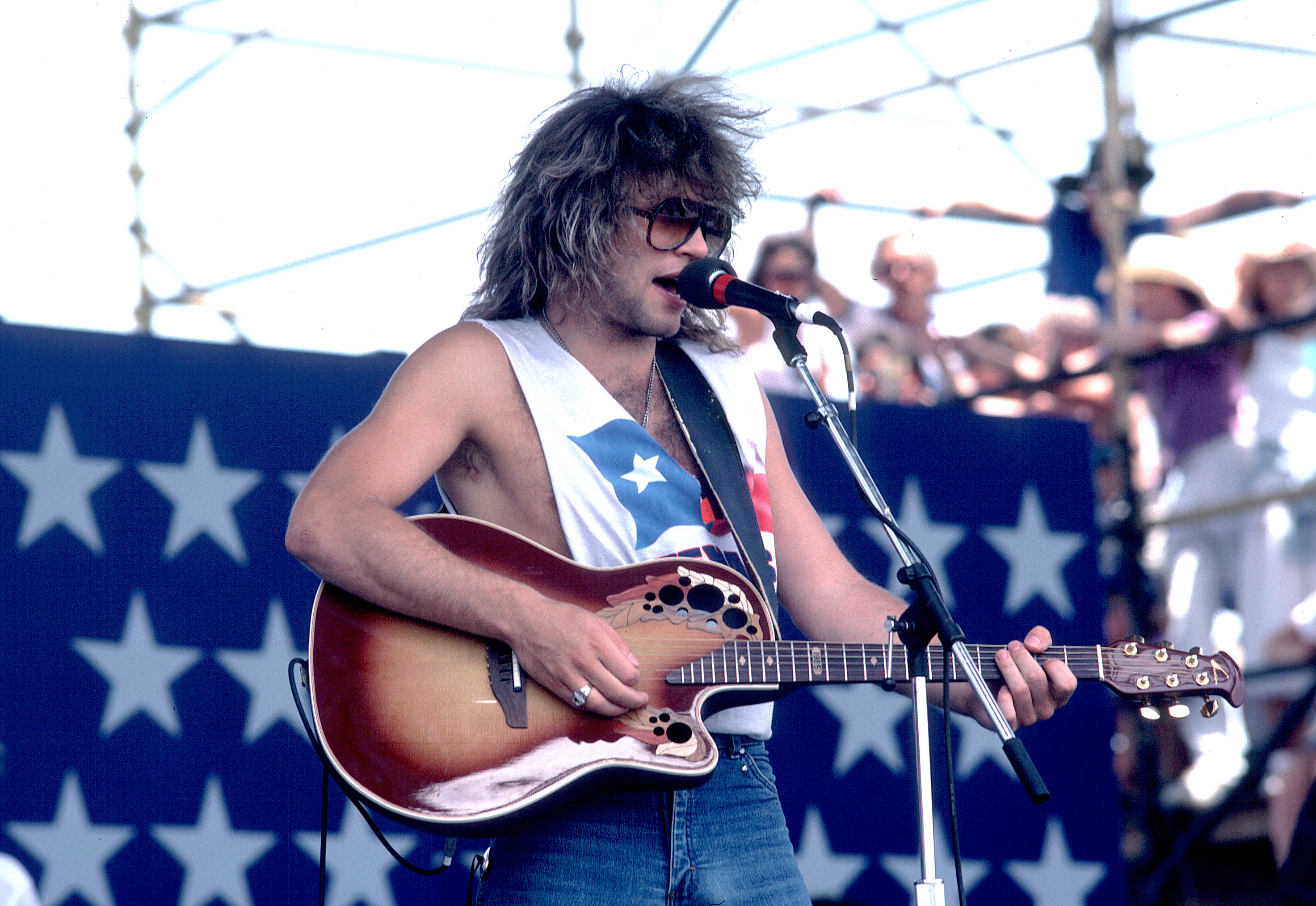
"We'd done well on the first two albums, and there were a lot of other bands who'd have been delighted to have gotten the sales we had," he remembered, as we chatted in a Madrid hotel room. "But our debut [released in 1984] had done well, both in commercial and critical terms, and when 7800˚ Fahrenheit came out [in 1985], it didn't do so well. And given the way that the music industry quickly tires of bands who aren't seen to move to the next level, I did have a few thoughts about what to do if the label decided to cut their losses, drop us and back somebody else. And while I publicly never doubted that we had what it took to do well, in the back of my mind I had one or two contingency plans."
This might come as a revelation to many fans, but Jon Bon Jovi had already made a number of sacrifices in his pursuit of his holy grail of becoming the biggest rock star of the mid-80s. And if the line-up of musicians he had assembled for those first albums – guitarist Richie Sambora, keyboard player David Bryan, bassist Alec John Such and drummer Tico Torres – couldn't cut it, then why wouldn't he look elsewhere? After all, such ruthlessness has been a key element in the success of many of rock's greatest heroes.
Of course, back in '86, Jon was publicly dismissing any notion he might fire the band should Slippery When Wet fail. Talking on a windswept New Jersey beach just prior to the album's release, he denied rumours that he'd considered making changes to Bon Jovi.
"I have heard those rumours and they're utterly without foundation," he asserted. "I can look you in the eye and say that nobody has suggested anything of the sort to me, and if they did I'd just point out that Bon Jovi isn't my project. We are a band, and we are five people together. We are more in tune with ourselves and our ambitions than ever, and once people hear the new record then they'll drop any of those ideas."
Bon Jovi had built a steady UK following, thanks to copious touring and hard work. They came over in 1984, opening for Kiss, and got a good reception all round. They returned the next year to play headline shows, and also to appear third on the bill at the annual Monsters Of Rock festival at Donington Park. ZZ Top headlined, but such was Jovi's growing appeal they were placed above Metallica on the bill.
But if the UK was slowly falling under the spell of Bon Jovi, the same wasn't yet true of their home country. The band had a lot of live experience and had benefited in '84 from a support slot with The Scorpions, then at the height of their powers. But when 7800˚ Fahrenheit failed to set the charts alight in the States, Bon Jovi found themselves opening up for Ratt on the latter's Invasion Of Your Privacy arena tour. It was to prove a stultifying existence for the young band, because while the tour was being billed in some quarters as a co-headlining trek, Ratt very much treated Bon Jovi as their underlings, with one or two members of the LA rockers being particularly stringent about what Jon could and could not do on stage.

"Some of the Ratt guys are great," Jon said, when the two bands played Madison Square Garden on that tour. "But there are a couple who are seriously scared of us. I'm not gonna name them, but they know who they are. Why, for instance, am I being restricted as to where I can go on stage during Bon Jovi's set? But it's happening. If things don't get any better then I can see a physical confrontation being inevitable.
"In certain cities, we are the bigger draw, and they should remember that. Because we won't forget the way they're treating us."
Ratt, for their part, felt that Bon Jovi were overestimating their popularity. As drummer Bobby Blotzer said, "We could have taken a lot of bands out on this tour. We've given them the break, and their album sales are lower than other acts we've turned down."
Bon Jovi finished their promotional duties for7800˚ Fahrenheit in the knowledge that they had everything to to prove with the third album.
Most believed that Bon Jovi's second record had been a disappointment. Hastily written and cheaply recorded, many thought that it lacked the excitement and the songs of the debut. In short, it was typical of the problems that many bands face with their sophomore release.
- Bon Jovi release This House Is Not For Sale video
- Q&A: Jon Bon Jovi
- Bon Jovi gave me ultimatum - Sambora
- Richie Sambora: Aftermath Of The Lowdown
Bon Jovi themselves believed it represented a tough moment in their career.
"We were all going through personal issues, and the general atmosphere in the studio was downbeat, to say the least," Jon Bon Jovi said later. "So, for us, everything about the album was wrong. That's why we don't like to do anything from it when we play live. It just wasn't a good time."
Although it's easy to understand the band's feelings, 7800˚ Fahrenheit is a far better album than they or other people might think. Indeed, the darkness of some of the writing suggests a band dealing with growing pains and expressing themselves with more honesty than they would on Slippery When Wet.
But the truth is, Bon Jovi were now facing real pressure for the first time in their career. They hadn't achieved that anticipated leap into mainstream with their second album. Now the debate began as to what the band should be doing next.
There were rumours that the label were considering dropping the band altogether. It was an era when multi-million selling albums were becoming the norm, and if an act like Bon Jovi could only scrape about half-a-million sales for 7800˚ Fahrenheit, then maybe they weren't going to be the next big thing, in which case perhaps it was time to cut losses and move on to another band who might?
So why didn't this happen? One of the reasons was that there was nobody ready to step up to the plate and convince the label they might be the alternative to Bon Jovi. Another is that the label had mooted that the band should be given another chance, but only as long as they agreed to work with someone who knew what it took to write a hit single. Which is where Desmond Child enters the frame.
It has been suggested that if Jovi hadn't agreed to work with Child then they would have been dropped. Following Slippery When Wet's completion, Jon Bon Jovi admitted that Desmond Child had been a positive influence on the album.
"He's got so much experience, and we get on very well with him. I think what he brought to the table was a feeling that he could take the raw ideas we had and make them a little more commercially friendly. There was never any belief that he was brought in to show us what to do, as much as to work with us. But anything that helped us to improve what we do as a band has got to be to our advantage."
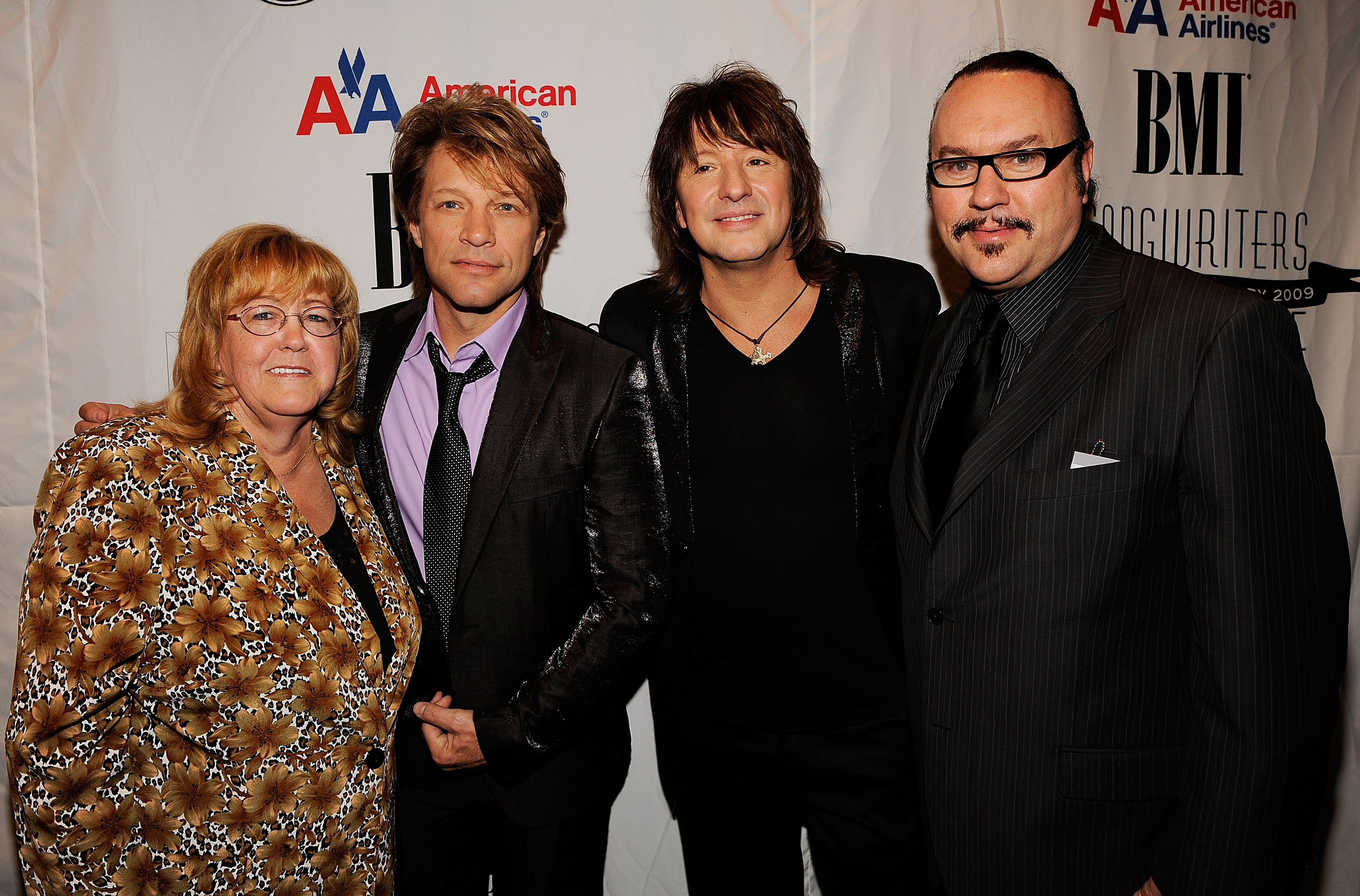
At the time there was no public admission in the Bon Jovi camp that Child was effectively forced upon them. But further down the line, Jon hinted that the band weren't exactly given the option of not working with him.
"I honestly don't know what the label's reaction would have been, had we said no to Desmond. As it turned out, there was no reason to reject him out of hand. Why would we? But if we'd met up with him and hadn't got on so well, I do wonder if we could have gone to the people in control and said, 'Sorry, he's not right for us.' Would they have come up with another choice? Or just told us to go away and write songs on our own? My feelings are that they would have pushed us very hard either to accept Desmond anyway, or to work with an equivalent songwriter. But as things turned out, Desmond was the right man for us."
One suspects that Jon Bon Jovi knew exactly what would have happened had they turned Desmond Child down. Almost certainly the band would have been dropped. But pragmatism has always been a hallmark of this quintet. But this wasn't the only area where crucial changes had to be made. While Tony Bongiovi, Jon's cousin, had produced Bon Jovi's debut album and Lance Quinn had overseen the second record, what Bon Jovi needed now was a producer who understood what was required to top the charts and take them there.
The man eventually chosen for the task was Bruce Fairbairn. Although quietly spoken, he had a formidable reputation for getting top-notch performances out of bands. From Loverboy to Prism, from Krokus to Blue Öyster Cult, he was known for being able to handle bands and their excesses, and still coax the very best from them.
"I am not a disciplinarian by nature," Fairbairn once said. "But my attitude is that any artist surely wants to be as good as possible in the studio. This is their album, this is their career, so why would anyone under those circumstances resent anybody whose aim is to make the artist's music even better? If they fail, then they can only look at themselves and ask, 'What did I do wrong?' I will always take full responsibility for anything I do wrong. But I want a band to leave the studio having worked with me and feel the experience was beneficial."
In some ways, Fairbairn was something of an odd choice. He wasn't a household name – in the end, it was his work on Slippery When Wet that made his reputation. But while there were bigger producers at the time, economics and availability meant that Fairbairn was the logical choice.
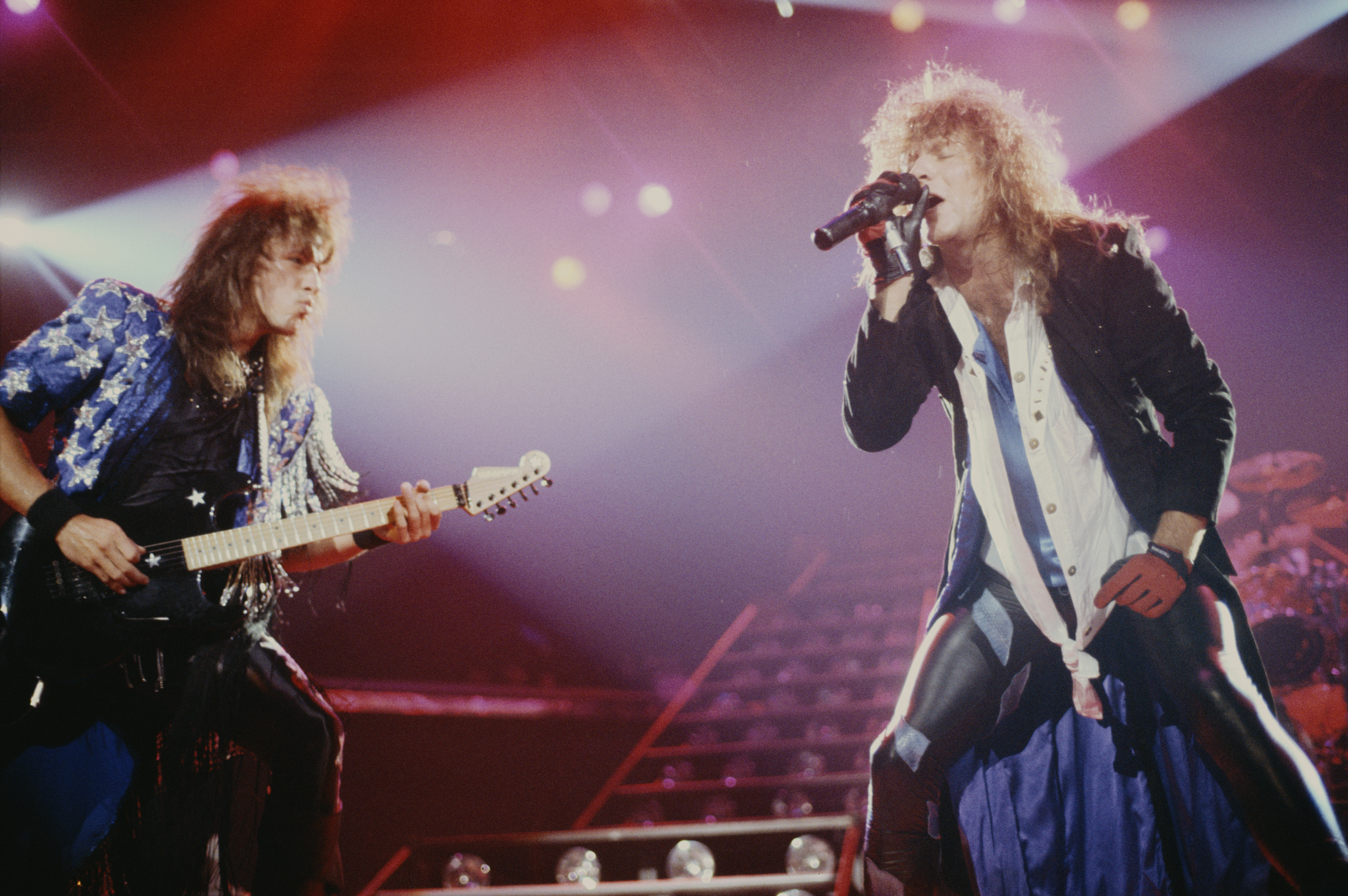
"Did I know that Bon Jovi were going to be as big as they became? Oh no," laughed Fairbairn at the time. "I knew we'd gotten a good album, but to be that huge? I am still amazed."
Bon Jovi left America to go to Vancouver to record the album that would become Slippery When Wet. Having travelled to Philadelphia to make 7800˚ Fahrenheit, but as Richie Sambora pointed out at the time, Vancouver was an altogether different proposition to Philadelphia.
"You get the feeling on the previous album that it was all rushed and on the cheap. We stayed in Philadelphia, because there was no option. And living in the same space for the five of us became a problem, because we were all going through bad situations. We needed our time alone, and could never get it. I think the irritation this caused meant the album suffered. But it was all very different with Bruce.
"For a start, going to Vancouver sounded like a fun idea, whereas heading for Philadelphia just didn't cut it. Secondly, once we met Bruce and his engineer, Bob Rock, they came across as the right people for us. And when they made it plain they would only record at their own studio, Little Mountain Studios, then it all felt reasonable to us. As it turned out, the whole recording process was so much better than anything we'd done before."
Being based in Vancouver gave the band an opportunity to mix the business at hand - making a record that would not only save their career – with the pleasure of being in a city with more strip clubs than churches.
"It was our sort of environment," laughs Sambora. "Seriously, you want nothing more after a hard day in the studio than the opportunity to go out and have some real fun. All those strip joints… We became very well-known in these places, I can tell you! But whatever we got up to was never allowed to interfere with the main purpose of being there. In the studio, nobody could say we lacked enthusiasm when it came to getting the best sounds and performances. But we put the same commitment into relaxing. Well, why not?
"The difference between Vancouver and Philadelphia couldn't have been a bigger contrast. Where was there to go in Philly? So that meant we had no way of blowing off steam, and this added to the frustrations we were feeling on the second album. No such problems in Vancouver, though. We were really able to stretch out, and this did so much for morale."
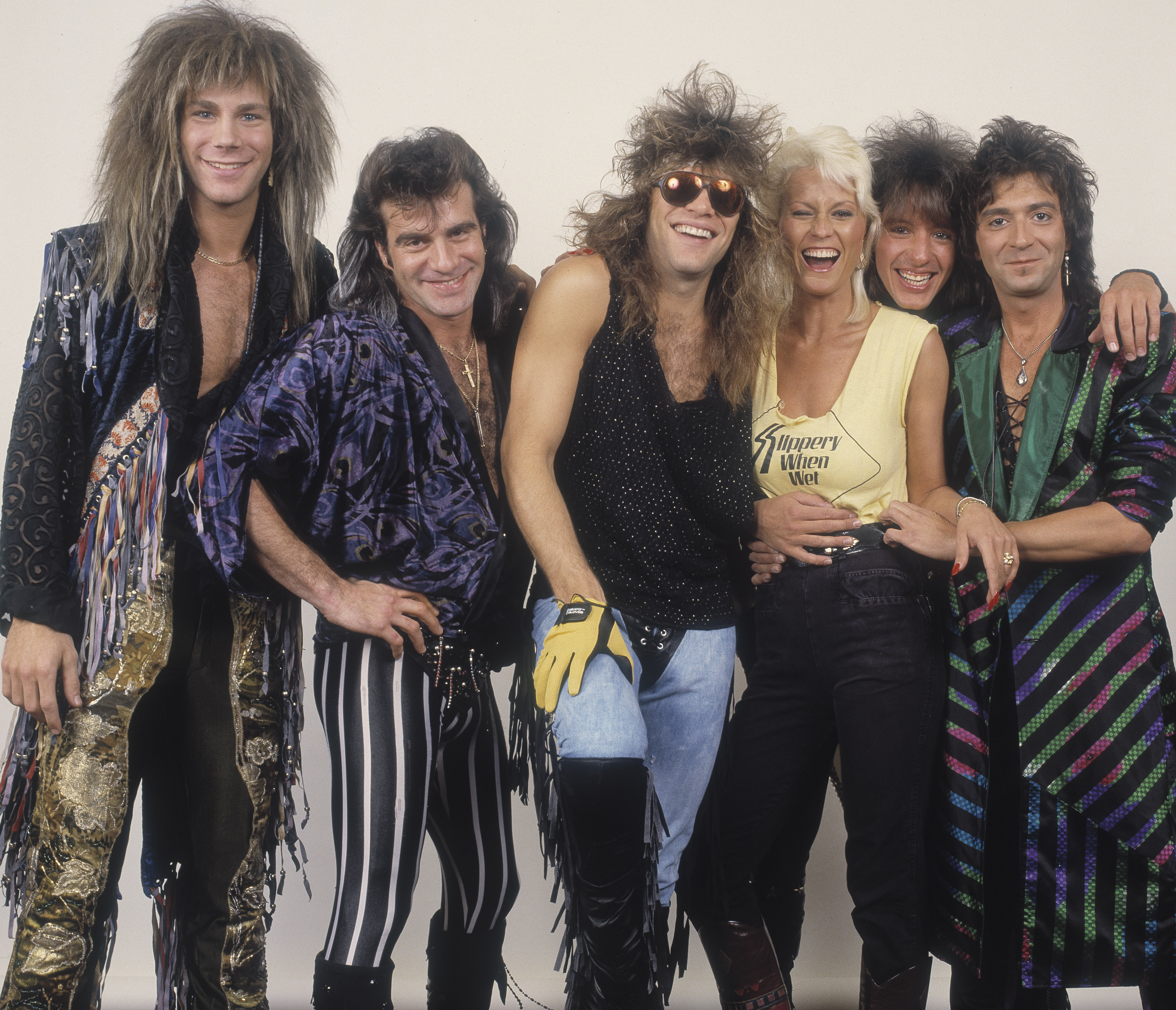
While it might seem as if Sambora was just looking for reasons to celebrate the bacchanalian action in Vancouver, Jon Bon Jovi believed the choice of location was a vital influence in how the album finally turned out.
"Never dismiss the power of positive thinking," he told me. "If you are in a situation that appears to stifle you, then you react accordingly. By this stage, we knew the way things worked in studios and what was expected of us. Had we been in New Jersey or New York, then the problem would have been that the label might have made regular visits, demanding to hear what we'd done and passing comment. Being so far away meant there were hardly any visitors from the record company – and besides, I doubt very much that Bruce would have been encouraging them to come along. They have a habit of getting in the way when you're trying to stick to a schedule.
"So all of that meant we could just get on with the task in hand, and do the best work we could, following a daily timetable. Also, the fact we could go out together or separately at night added to the vibe. In those days we weren't so well known, and therefore didn't require a constant presence of security. Of course, there were Bon Jovi fans around – word quickly got out that we were in the city. However, it was to become a much bigger problem later on, once Slippery When Wet had been released."
Once they'd finished recording the album, the band took the unusual step of taking a tape down to a local strip bar in Vancouver to play it for the patrons and employees.
"We really didn't know what to expect from anyone," says Sambora. "We thought we had made a good album. But, ultimately, it's the people who decide whether you've got a hit or not. So we thought it was a good idea to give it a run at a local public place, just to gauge the reaction. Thankfully, everyone appeared to love it. That was such a big relief. To be honest, I'm not too sure what we might have done if the reaction had been negative."
Jon, reflecting upon this risk a few years later, admitted that if the first public airing of the new album hadn't been a success, then the band would have been in huge trouble.
"I don't recall we ever thought it through in terms of what might have happened if people had told us, 'this stinks'. We had no more studio time left, and the most we could have done was to tinker a little with the recordings and the running order. I suppose we might have tried it at a second bar. Who knows? It wasn't meant to be a gimmick, but just a way for us to discover whether our confidence in the album would be matched by the reactions of others. It worked brilliantly, but the opposite could easily have occurred, and then we might have been in the shit."
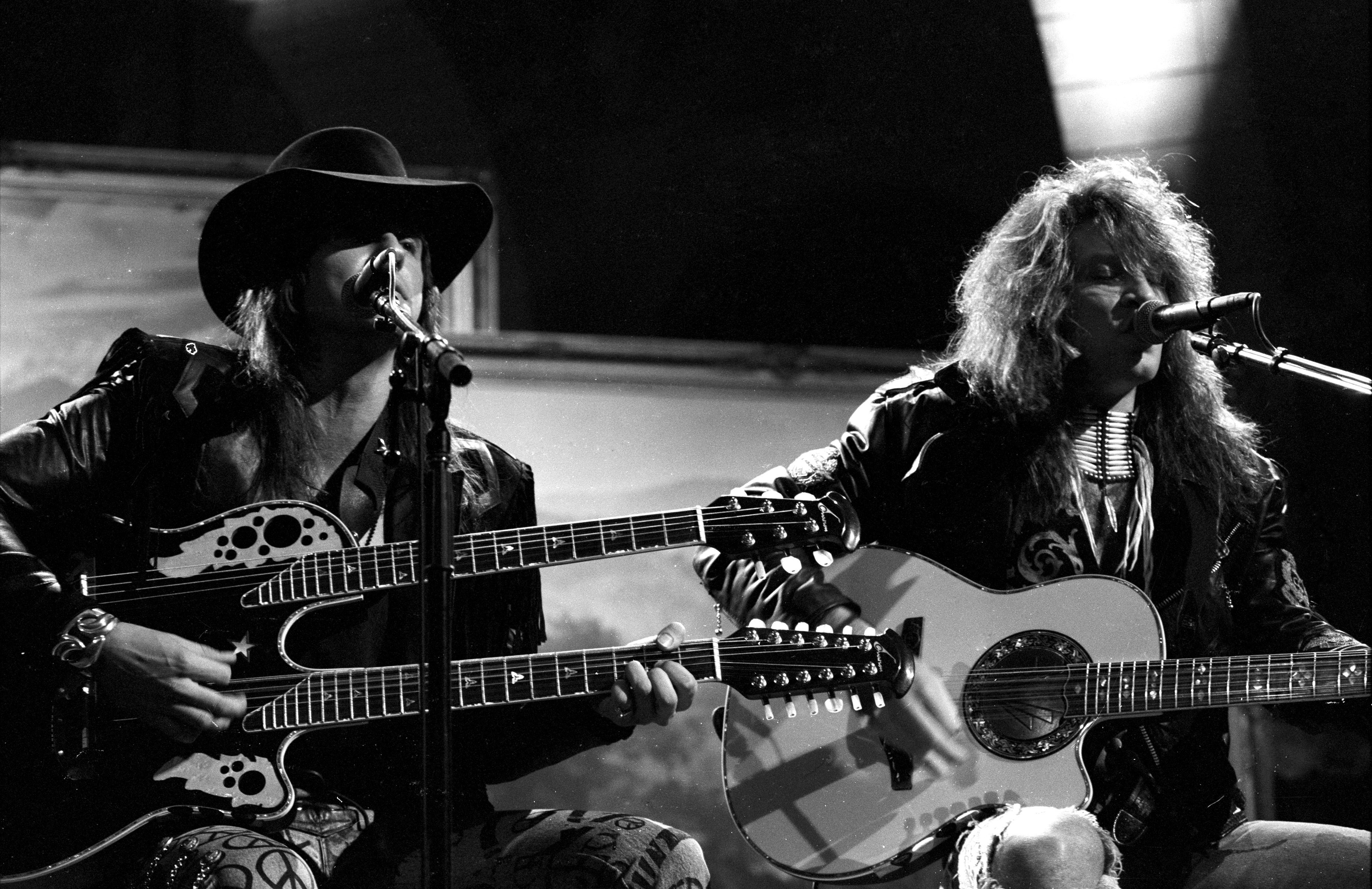
Having successfully proven that the album had considerable commercial potential, the band now had to decide on a title for the record. Jon pointed out before it was released that the initial idea had been to call it Wanted Dead Or Alive. However, there was to be a change of heart – and title.
"All along we had this idea of calling it Wanted Dead Or Alive. It just seemed to have the right cowboy attitude, and to sum up the way we saw ourselves. But then we completely rethought the whole idea and instead settled for Slippery When Wet. That happened when we were driving in the rain and saw a sign reading 'Slippery When Wet'. It just made so much sense. It was also our way of paying tribute to the strip clubs and girls in Vancouver who'd looked after us so well."
The next big test would be how the label and media would respond to the album. Bon Jovi had rented an apartment on the shoreline for the purposes of entertaining the media and playing the album to journalists. There was definitely tension in the air at the apartment. Despite attempts at camaraderie between the band's members, it was evident that the band were on edge. We all knew Slippery When Wet was the make-or-break album for them. If it sold well, then they were safe with the record company, for another record at least. If it didn't sell, then the group knew that they'd face a pretty bleak future.
"I was sure we had made a great album," Jon said several years later. "But what I couldn't be sure of was that it would sell. How do you know what's commercial and what isn't? All you can do is your best, and we'd done that. However was that enough? I kept wondering to myself, whether we were about to live the dream or be caught in a nightmare. I began to question our choice of songs, and the way we recorded… And it was crazy, because I knew that it all worked. But that's what you go through, as an unproven artist.
"Every time I play the album for someone, I wonder if they'll turn round and say: 'Jon, give it all up. This is hopeless.' So far that hasn't happened. But I expect it at any moment."
The songs Jon was most proud of weren't the obvious commercial hits – the ones co-written with Desmond Child – but the deep cuts, the album tracks, picking out Social Disease, which he penned with Sambora, as one of the album's highlights.
"You know, Aerosmith heard it and got in contact asking if they could have it for their next album," he smiled. "No way, that's for us. We're keeping it. But when you've got a band like that paying you this sort of compliment it does make you feel warm inside."
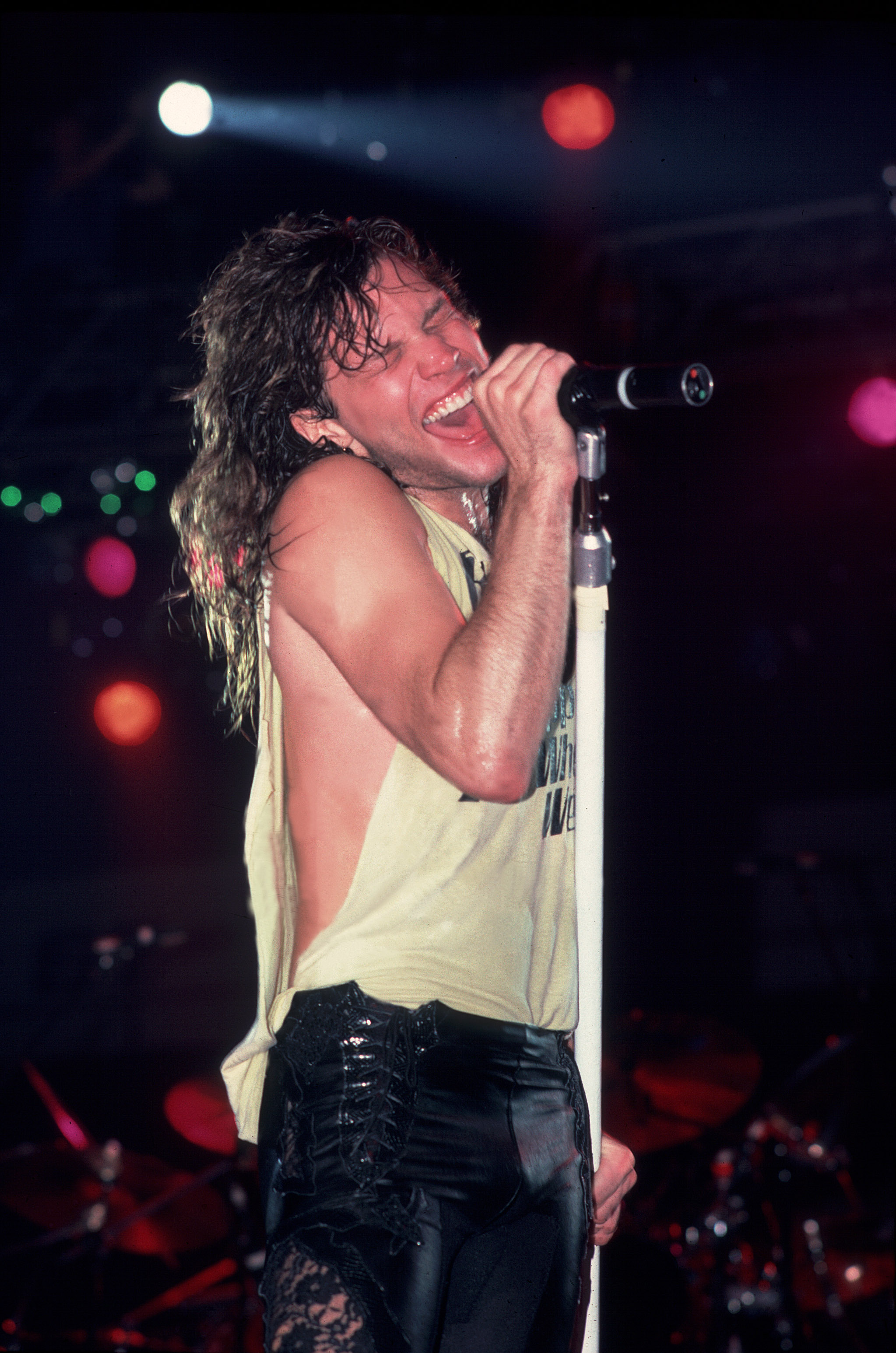
He also had a huge affection for Wanted Dead Or Alive, which had, for a while, been flagged up as the album's possible title track.
"It's really such a cool road song. Rockers and cowboys do have so much in common, and I think Richie and I have captured that spirit so perfectly. The way we ride into town, do our thing and then leave… It is the law of the West."
The fact is that, from the beginning of the Slippery When Wet campaign, Jon was slightly concerned that media attention would focus upon the hit singles co-written with Desmond Child, and that the ability of Jon and Sambora to write memorable tunes on their own would get lost in the mêlée. The crux of the matter is that, despite the feeling in certain quarters that 7800˚ Fahrenheit had exposed failings in the band's ability to write strong songs, this was far from being the case. But it was the kind of input that Desmond Child could bring hat would help put them on the charts.
However, Jon didn't just want financial and commercial success for himself and his band, he wanted to be appreciated and respected too.
"I don't see myself as a pin-up and a pop star," he said. "I want the sort of abiding and enduring respect that Bruce Springsteen or Southside Johnny have. They make people think with their songs, and that's what I hope to achieve."
- Richie Sambora album with Orianthi has country feel
- Bon Jovi reveal 30th anniversary reissues
- Jon Bon Jovi runs from his past
- The Top 10 best Bon Jovi songs
While he certainly never doubted the quality of Desmond Child co-writes You Give Love A Bad Name or Livin' On A Prayer – although he did have initial misgivings about the latter – he realised that these songs would hoist Jovi into the mainstream, and that unless careful control was kept over the media's perception of the group and their new album, then all Jon's hopes for artistic acceptance would be blown away in a whirlwind of media hype and pop star like adulation.
Of course, in the end, Jon Bon Jovi was totally right about what Slippery When Wet would do for him and the band unless they maintained careful control over their message. Because the huge and almost unexpected explosion of interest in Bon Jovi provoked by the album's mammoth hit singles did lead to an accentuation of band's pop appeal, perhaps at the expense of their artistic reputation.
Not that he needs your pity. The first single from the album, You Give Love A Bad Name, immediately captured the public's imagination and set the band on their way to mega-stardom. It topped the charts in America, reached No. 14 in the UK, and initiated an unprecedented groundswell of interest in the boys of Bon Jovi.
Radio stations couldn't play the song often enough. Teeny magazines fought for access to Jon. You couldn't move for Jovi-mania.
After a hasty change of the cover, the album itself sold so fast and so hard that Phonogram were finding it tough to keep up with demand. While there appeared to be a confidence at the label in what the band had delivered, by the same token nobody there expected the response to be quite so huge.
The album made it to the top of the American charts and to the No.6 in the UK. But around the rest of the world, the reaction was equally remarkable. At last everything that the band, management and label had been working towards was coming true – but in a way that was so much more intense than anybody could have foreseen. It was taking the band entirely by surprise.
"Things are altering for us now," said Jon at the time. "Before we had the freedom on tour to go out and do what we wanted on days off. But now we daren't go out of the hotel for fear of being mobbed. And the media demands are so much higher. It seems everyone wants to talk to us."
"I suddenly felt like I was in The Beatles," laughed Sambora. "Everywhere you look there are fans desperate to touch us, and our photos are all over the place. We turn on TV and there are our videos. We've ceased to have our own lives. We have become part of something much bigger."

Bon Jovi slowly began touring in support of the new album in America, choosing to open for southern rockers .38 Special. It was a plan that made sense at the time, because nobody knew what was going to happen to the album. If it had made a slow start sales-wise, then seeing Jovi in half-empty arenas could have been very harmful to their profile. But actually, as it turned out, .38 Special were suddenly attracting a whole new audience of female admirers, who were only there to see their support band. Bon Jovi were on their way.
In the UK, it became clear that the group's record label now saw Bon Jovi as something of a cash cow. After one of four sold-out shows at London's Hammersmith Odeon, a celebration party was held at the Mexican restaurant Break For The Border in Soho. The band turned up, flanked by phalanx of record company executives and security, and were ushered into their own private area, even though they made it clear to those surrounding them that they'd rather mingle with the guests.
Towards the end of that night, Sambora said, with a resigned air, "I suppose we'll have to get used to all of this. Our lives aren't our own anymore."
How right he was. As Jon Bon Jovi put it several years later: "You spend the early part of your career craving for success and attention. Then when you get it, you realise that suddenly what you wished for had come true and it might not be exactly what you hoped it would be. Then the battle becomes to find enough space to live your own life."
By August 1987, the Slippery When Wet global tour was drawing to a close. The band had been on the road for over a year, and when they pulled into the Monsters Of Rock Festival at Donington on August 22 (to headline the event they'd played two years earlier, further down the bill) the effects of fatigue upon the members were obvious, especially on Jon.
While his eyes had sparkled with excitement and intent at the start of the tour, now they looked sunken and dull. His baby-faced features were rendered unrecognisable by a thick, bushy beard. The eternal pressures and demands of fame were having their effect upon the frontman, and it was all he could do backstage to raise a smile. The fact that he still got on stage and delivered that night said a lot about his professionalism and pride, because the man was mentally and physically drained, at the end of his tether.
"I doubt we'll get the chance for a break," he confided, prior to Bon Jovi's set. "We're already thinking about the next album."
He wasn't kidding. Because no sooner had the Slippery When Wet cycle concluded than Bon Jovi were right back in the studio working on the follow-up.
Even after selling millions of records (currently worldwide sales figures for Slippery When Wet stand at an astonishing 28 million, with 14 million shifted in America alone), there were no guarantees for Bon Jovi.
"The record label advised us not to take a huge break and put our feet up," Jon later explained. "Success can be very fickle the first time round, and unless you follow it up quickly you run the risk of being forgotten. So it made sense all round for us to waste no time in getting the next album recorded at out."
The irony is that this follow-up, 1988's New Jersey, would only sell half of what its predecessor had done, and to some appeared to be a major failure. The reality, though, was such sales were still a big success. Because hardly anyone expected Bon Jovi to maintain the inflated sales figure enjoyed by Slippery When Wet. There had been a slight sales drop-off, for sure, but one thing was certain: Bon Jovi were in it for the long haul.
There's no doubting that Slippery When Wet was important not only for Bon Jovi, but also for rock in general. There was a need for an album like Slippery When Wet to happen and rejuvenate the whole scene. As a result, the likes of Whitesnake, Mötley Crüe and Poison would go on to record major-selling albums of their own. Bon Jovi proved that sales at a multi-million level could not only be achieved by rock bands, but also maintained.
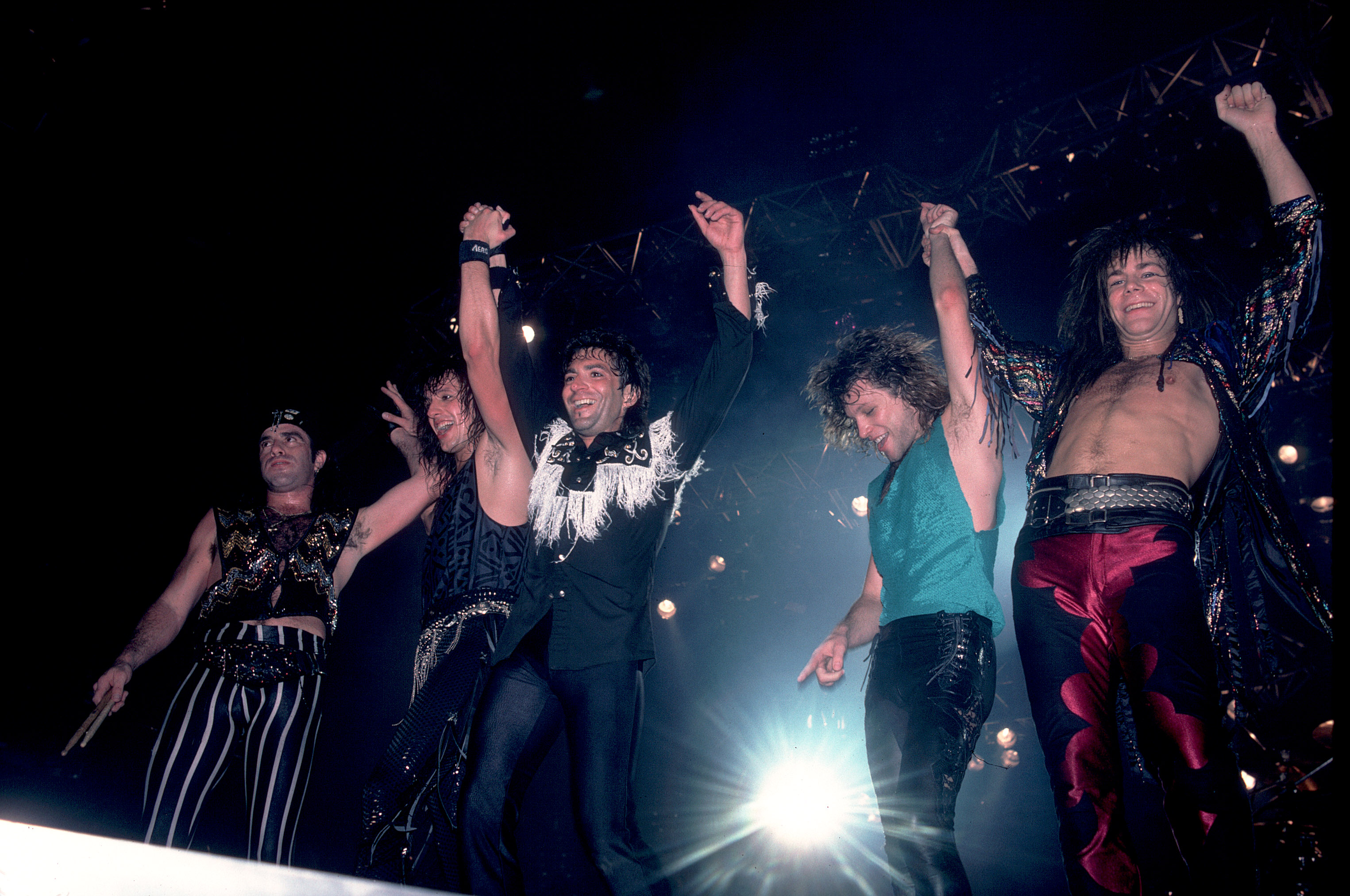
Slippery When Wet increased Bon Jovi's fan base so significantly that many probably came to this album not realising they'd already put out two previous records. And after this, there was always a sense of anticlimax, because how could they possibly eclipse their masterpiece? Bon Jovi captured a spirit of the age in a way that can never be planned. Slippery When Wet was a phenomenon.
"I'll always be proud of what we did here," said Jon several year later. "In some ways I am in awe of what it did for us."
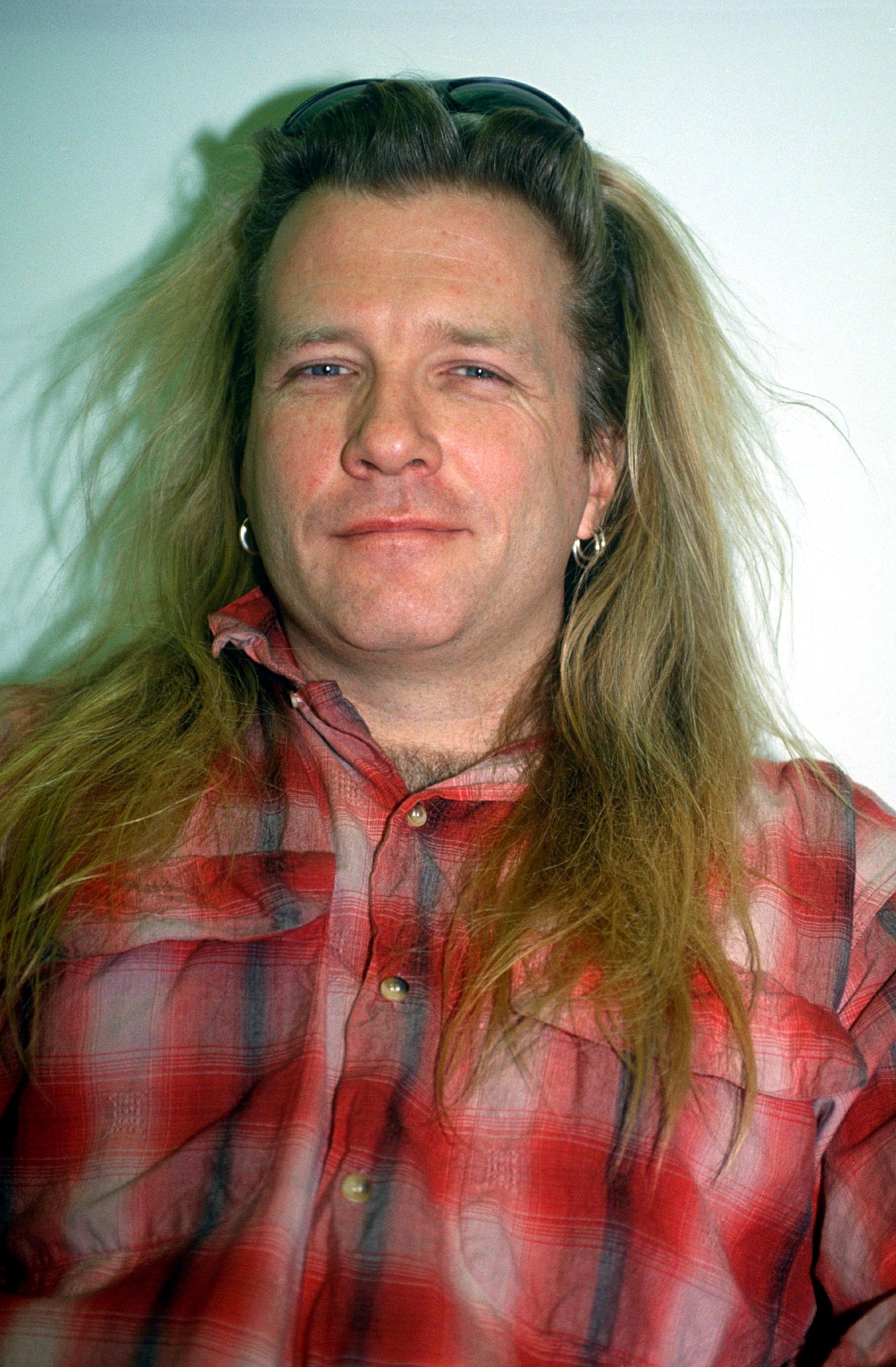
"They blew into town and tore Vancouver up!" - Bob Rock (Engineer)
Although now regarded as one of the world's top producers, at the time he was involved in working on Slippery When Wet Bob Rock was still a young engineer learning his trade.
"Bruce Fairbairn and I had teamed up a few years earlier. He liked the way I got an almost punk sound for bands. We'd worked with some success with Loverboy and Prism, but this was a big deal for us. The thing is that, when the project came up, Bruce said he had a clash with another album from a Canadian band. But I told him he had to do this one.
"A lot of Bruce's work with Bon Jovi was done in pre-production rather than in the studio, so the band arrived fully prepared. And the whole thing went by really quickly. We recorded most of it live and then added a few overdubs, over six weeks."
Rock had no idea Slippery When Wet would go on to be such a huge success.
"I knew it was good, and thought that sales of half a million were assured, But then it exploded so fast, everything was out of control. However, I knew Livin' On A Prayer would be a hit and that You Give Love A Bad Name was a great rock song.
"They blew into Vancouver and tore the place up. They were hanging out with so many girls and were such fun to be around. I do recall a girl – I think she was a stripper – turning up at the studio, with her mum. Apparently Tico [Torres, drums] had promised to marry her. But Bon Jovi had already left. That was typical of them back then. Great guys."

"There was an immediate rapport between us." - Desmond Child (Songwriter)
Desmond Child has warm memories of working with Bon Jovi.
"The first time we met was in Richie Sambora's mother's basement in New Jersey," says Child. "It was Jon, Richie and me – we hit it off straight away. I can honestly say that there was an immediate rapport between us."
In fact, that first meeting was to result in the three writing an iconic rock classic.
"Yes, on day one we wrote You Give Love A Bad Name – and that's not a bad way to start any professional relationship."
Another song to come out of the collaboration was Livin' On A Prayer, which was partly inspired by Child's own life.
"At the end of the 1970s I had a band called Desmond Child & Rouge, and I was living with Maria Vidal who was a singer with the band. She'd work as a waitress to make money and had the nickname of Gina, so that was part of the reason behind the character in the song."
There were suggestions that Jon Bon Jovi was ready to leave Livin' On A Prayer off the album, because he didn't like the initial recording. According to Bon Jovi folklore, it was Sambora who convinced him to persevere. Does Child recall this at all?
"I know Jon was very happy with the song itself. He might have been unhappy with the way it came out, but I don't know how true it is that he was ready to leave it off the album."
Child has continued working with the band ever since.
"Jon has become a close friend, and is the godfather to one of my children. I have nothing but the highest admiration and warmest affection for him. He's somebody who's gracious enough to show respect to people he works with – unlike some others I could mention!"
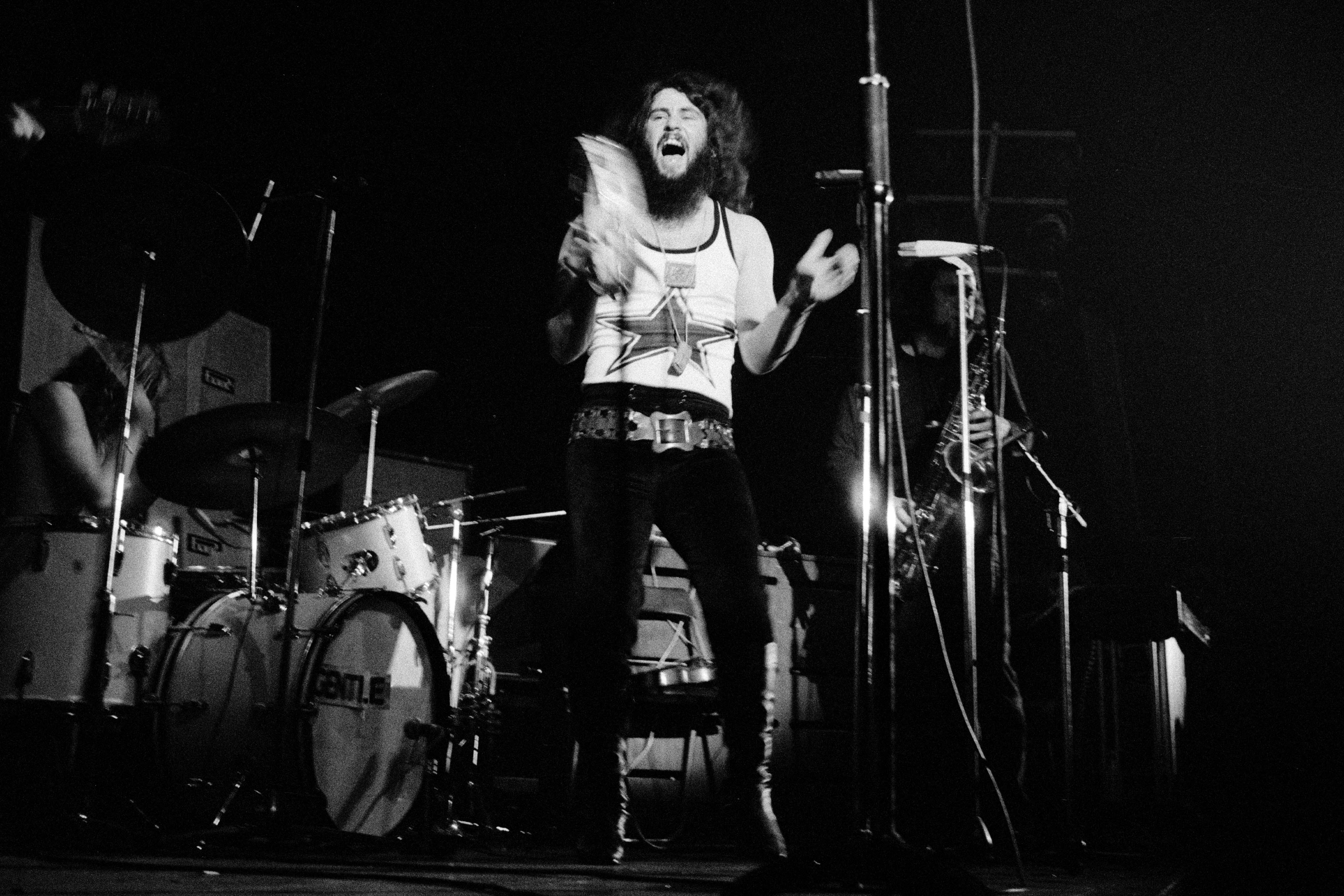
"Everything felt like the stars were lining up…" - Derek Shulman (A&R, Mercury Records New York)
A founder member of cult prog rockers Gentle Giant, Shulman was the man who signed Bon Jovi. And he never lost belief in them, even after the relative disappointment of 7800˚ Fahrenheit. Moreover, he insists that the band was never any danger of being dropped.
"There was never any doubt that Bon Jovi would break through. Sure, 7800˚ Fahrenheit was a very difficult record to make, but although it didn't set the world on fire, nonetheless it still sold fairly well. The band was never going to be dropped."
It was Shulman, though, who suggested the band should work with an outside songwriter, introducing them to the talented Desmond Child.
"I was working with Kiss on the Lick It Up album and noticed the name Desmond Child as a co-writer on a couple of the better songs on the album. I called up Gene Simmons and asked who this Child was. He asked me if I remembered Desmond Child & Rouge. I, of course, did as I had been an artist on the same label as them, Capitol. Gene tipped me off that Desmond could be a potentially great co-writer one of these days, so I asked Jon and Richie if they would like to meet him. The rest is history."
Shulman also selected Bruce Fairbairn as the album's producer.
"I'd heard great things about the Vancouver 'mafia' from some musicians, and knew that Bruce was a great musician and writer as well as a fantastic producer. He had already had success with Loverboy and Honeymoon Suite. I spoke to him, then put him in touch with Jon and [manager] Doc McGhee."
Shulman now says that he believed there was something special going on with Slippery When Wet from the start.
"Everything felt like the stars were lining up. The band was in ascendancy on a live, touring basis, and the company was very committed to breaking Bon Jovi. MTV and radio were major marketing factors in those days, and the album sounded incredibly well-produced, with brilliant songs. Plus Jon and the band had 'the look' in those days. I knew that the album was going to be huge as soon as it left the studio."
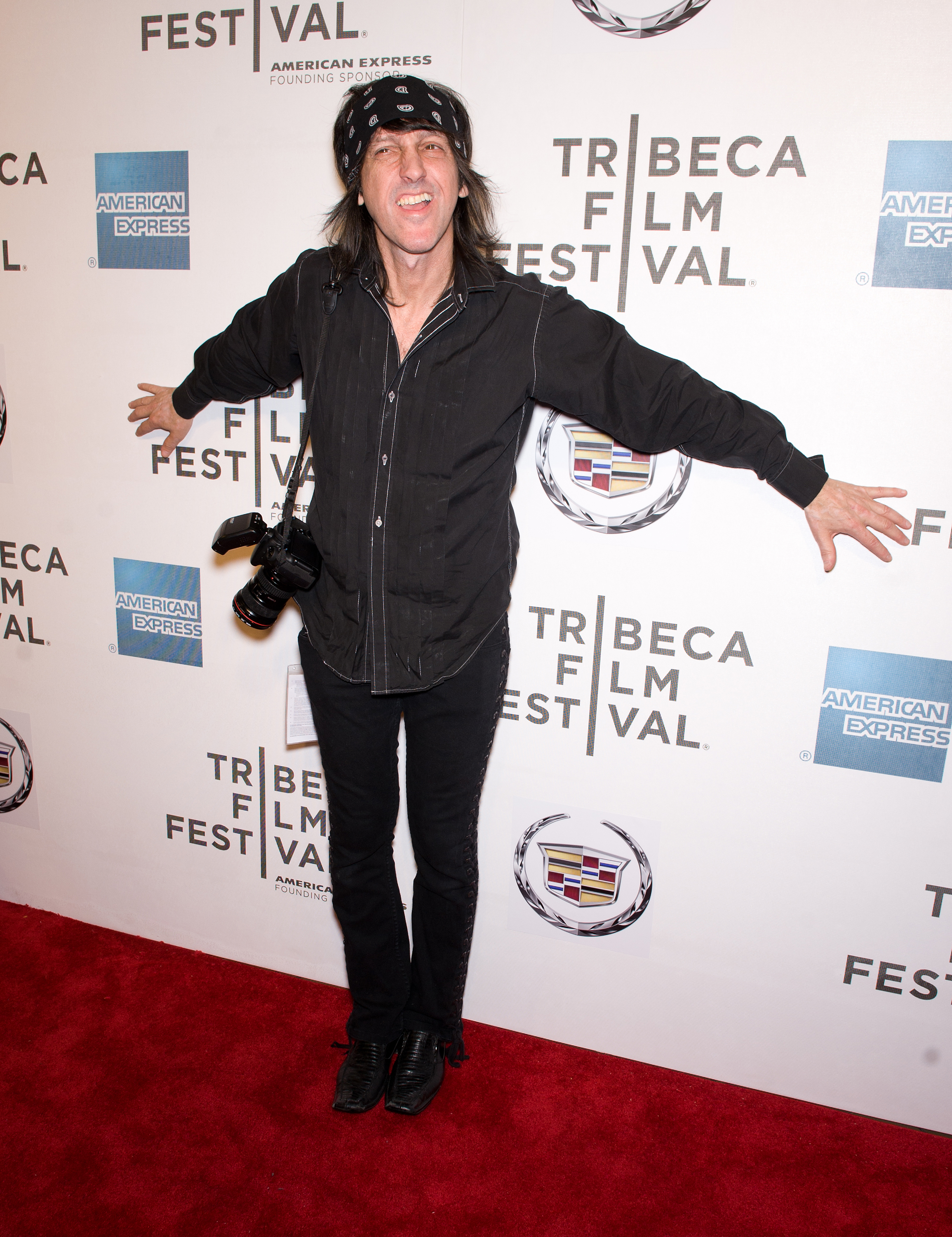
"The band wanted to attract boys and girls!" - Mark Weiss (photographer)
Mark Weiss was hired to do the publicity photos for 7800˚ Fahrenheit, which led to his work on Slippery When Wet.
"Originally, it was to be called Wanted Dead Or Alive. They grew beards, got Stetsons, and I did individual photos of them, from which I was then supposed to mock up an old Wanted poster.
"The band wanted to attract boys and girls. They thought the Wanted poster idea would get the girls, but were worried that a lot of the guys would be indifferent. The guys used to hang out at strip bars in Vancouver, and the idea for Slippery When Wet came from the strippers going into these booths and covering themselves in suds."
The band and Weiss mocked up a car wash scene on the Jersey Shore, with lots of girls in the photos. "My assistant went up and down the beach with Tico Torres and he'd point out the girls they wanted. Then my assistant would ask them if they were interested in being in the shots. Of course, none of them believed him, until they saw Tico in the background."
The main girl used in these photos was also chosen in this manner. Her name was Angela.
"I forget her surname, but she was to be the centre of it all. We'd already had the T-shirts made up, and the photos came out really well. The band believed this cover would attract the boys. As for the girls…"
However, the cover was about to bite the dust, and Weiss knows who's to blame.
"It was the PMRC, who had a lot of sway at the time. There were concerns that such a sexy cover would lead to some shops not stocking the album. That's the real story. For some reason, Jon tells everyone the problem was the pink border round the photo. And nobody ever questions him on that."
In the end, Jon Bon Jovi went into Weiss' studio, got a black plastic bag, sprayed it with water and wrote Slippery When Wet on it.
"I shot that and it became the cover. But by that point, I think we were all past caring."
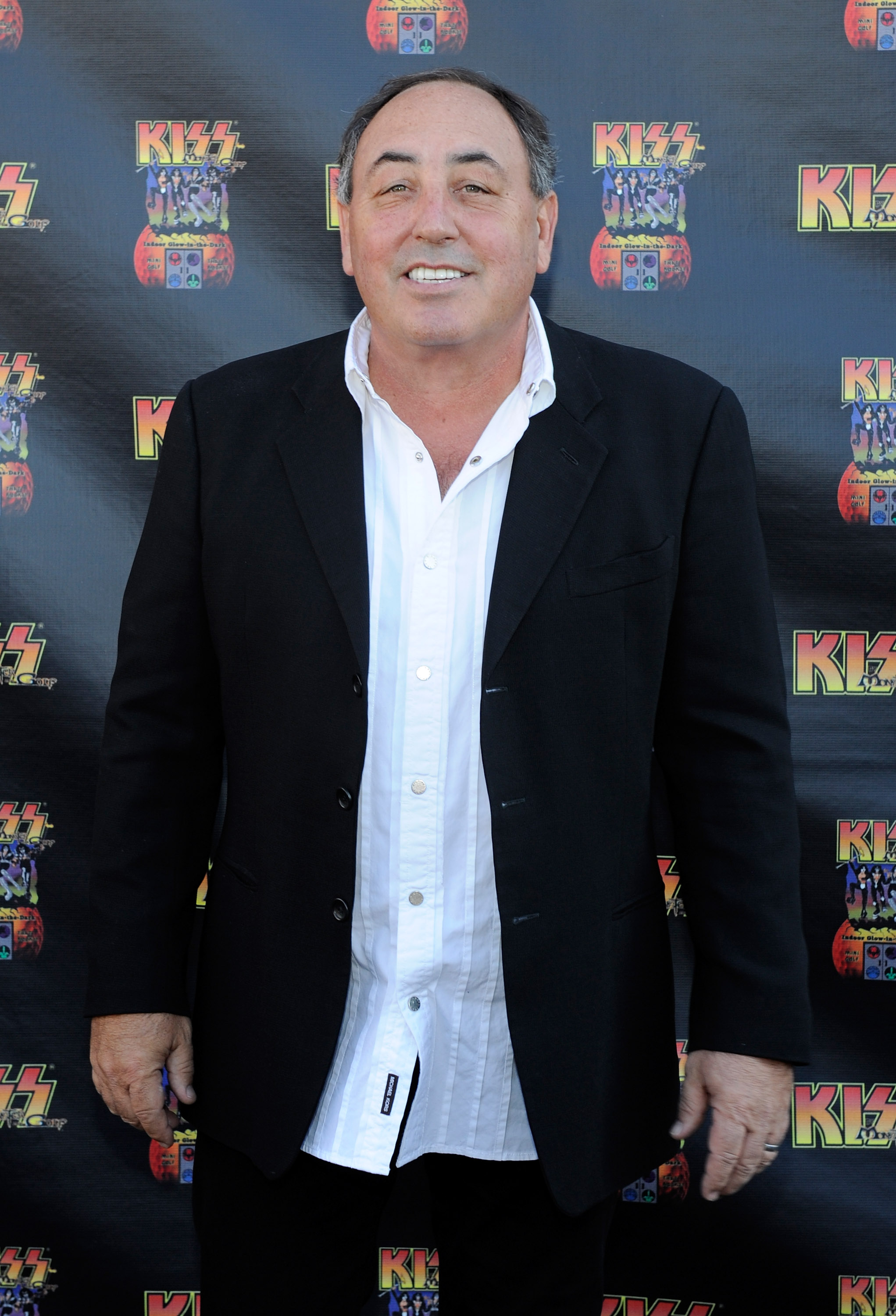
"There was a possibility the band would split." - Doc McGhee (Bon Jovi Manager)
"It wasn't that the label might be about to drop them," says Doc McGhee, of the biggest problem facing Bon Jovi as they prepared for Slippery When Wet. "It was more what the band themselves might do. If this album had failed to happen, then there was a real chance Bon Jovi would have given up and just split."
As it turned out, Slippery When Wet was nothing but smooth sailing. "They did six weeks of recording, and it was fun all the way. All of us had such a great time, which is a great contrast to what happened on 7800˚ Fahrenheit, where every overdub seemed to be a nightmare.
"In the case of 7800˚ Fahrenheit, there was no connection for the public to make," McGhee adds. "That was a major contrast to Slippery When Wet, because this one did have the big connection with people. It's just a great album, full of songs with which everyone could relate.
"What the band did was make an album that redefined them. It was so different to anything they'd done previously. And that's why it took them to the heights that it did."
This article originally appeared in AOR #4 .
For more on Bon Jovi and how they followed up the phenomena that was Slippery When Wet: Bon Jovi - How the New Jersey album nearly killed the band
Source: https://www.loudersound.com/features/bon-jovi-songwriters-strippers-and-suds-the-story-of-slippery-when-wet
0 Response to "Slippery When Wet Bon Jovi Sign Funny"
Yorum Gönder